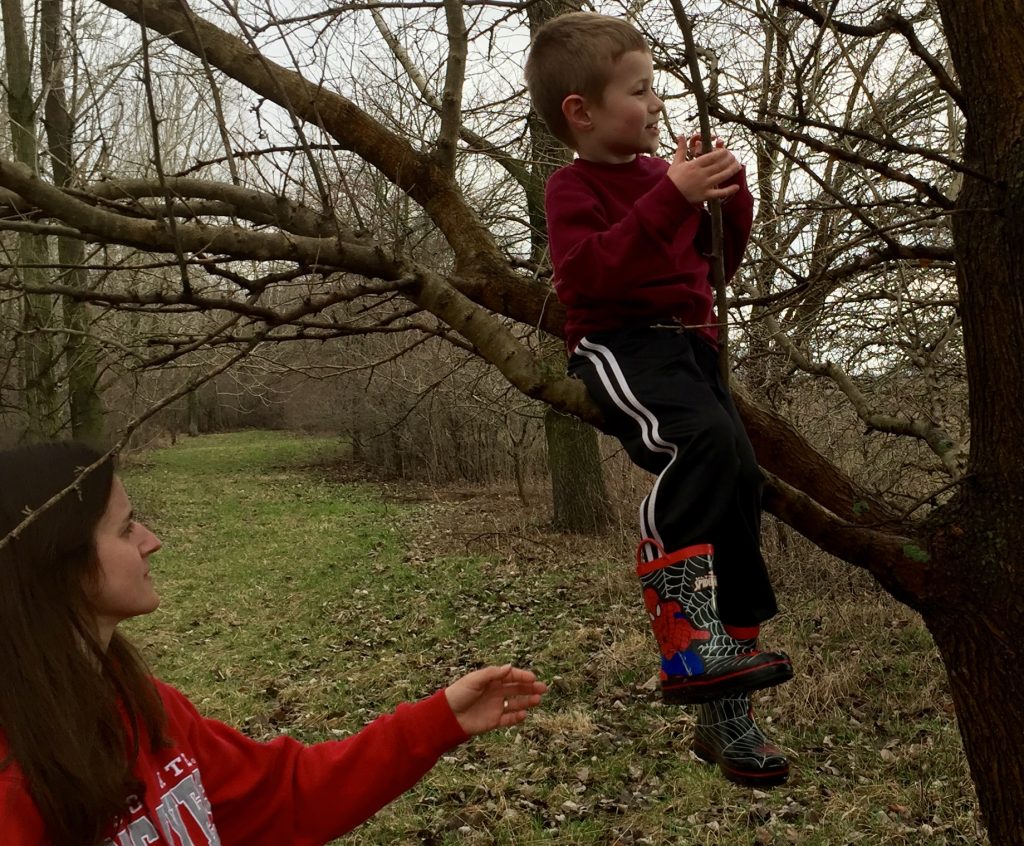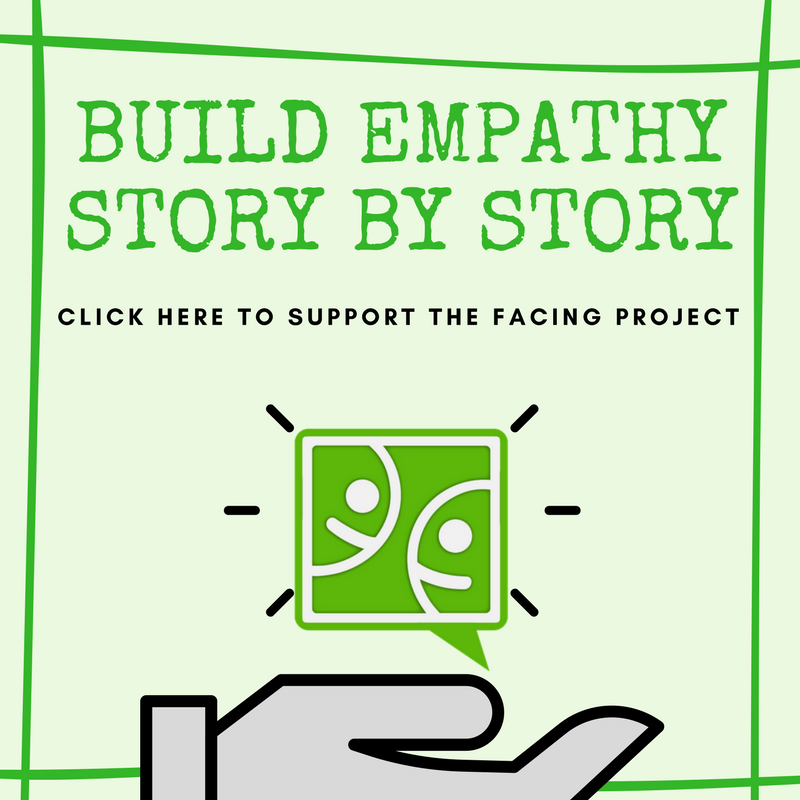Through the Facing project, many can change lives by telling their story. You may think it isn’t a story worth telling, but there are many out there who may need to hear it. Communities can come together to help each other. Below is a story written by our own, Kelsey Timmerman. His story proved to help another who heard it. Your story can do the same.
My Wife’s Story Moved A Stranger To Tears by Kelsey Timmerman
She didn’t know the story was mine. That the boy in the story with autism was my son, Griffin, that the narrator was my wife.
Yet as Anne, our volunteer reader, read in front of the packed room at Cornell University with a photo of Griffin behind her, she got choked up. I thought she was going to need a moment. When she returned to her seat in the audience, I revealed my connection with the story.
“Griffin is my son. That’s my wife’s story. That’s my story.”
It’s a moment I can feel each time. I can feel the audience carrying the weight of the story. The weight that my wife carries; the weight the writer of the story, Beth, who chatted with my wife in order to write the story carried; the weight that multiple monologists have carried at performances across the country. The weight that the reader of The Facing Autism book carries.
The point of Facing Project stories isn’t the production of stories. We’re not a story factory. The stories aren’t the thing. It’s the act of creating that’s the thing.
Med students write patient stories to build empathy
One of the biggest criticisms leveled at our model goes something like this: “Instead of having writers write a storyteller’s story, why not empower the storytellers themselves to tell their own stories?”
That sounds like a wonderful project. You could do that, but that’s not what we are trying to accomplish with The Facing Project. We are a nonprofit community storytelling project that connects people through stories to strengthen community. For us, stories are the building blocks of that connection to build empathy.
Writer and storyteller meet face-to-face. Writer “writes in the first person enabling her to ‘crawl’ in the [storyteller’s] skin’ more easily.”
I used quotes at the end of the above sentence because it’s from a paper published in Academic Psychiatry (Points of Contact: Using First-Person Narratives to Help Foster Empathy in Psychiatric Residents).
The paper continues, “…writing autobiographical stories from the patient’s viewpoint…can be a very powerful and effective method of fostering empathy with patients. Narrative competence permits caregivers to fathom what their patients go through, to attain that illuminated grasp of another’s experience…”
The Stories We Carry
Yes, the Facing Project stories are collected and shared and hopefully live on to educate and connect others in the community, but the biggest mark the Facing Project makes are those directly involved in the storytelling process–storyteller, writer, and actor.
My wife could have written her own story. She could stand in front of an audience and read that story (although you’d be hard pressed to get her to do that!). But then, only one person carried a story, considered and felt the weight of each word.
Instead a community carried my wife’s story.
Anne, a mother herself, carried my wife’s story and for the first time she felt the weight of the moment you realize your baby boy has autism.
Spread these stories, please
If you know someone with autism in their lives, please share the stories from the Facing Autism Project.
Are you interested in seeing more stories like this? If so, we need your help. Check out the Build Empathy Story-By-Story Campaign to learn how you can plug into the work of The Facing Project.
About The Facing Project:
The Facing Project is a 501(c)(3) nonprofit organization that connects people through stories to strengthen communities. The organization’s model to share stories and raise awareness is in cities across the United States focused on topics such as poverty, sex trafficking, mental health, immigration, and more. Facing Project stories are compiled into books and on the web for a community resource, used to inspire art, photography, monologues and—most importantly—community-wide awareness, dialogue, action, and change toward a more understanding and empathetic society.


